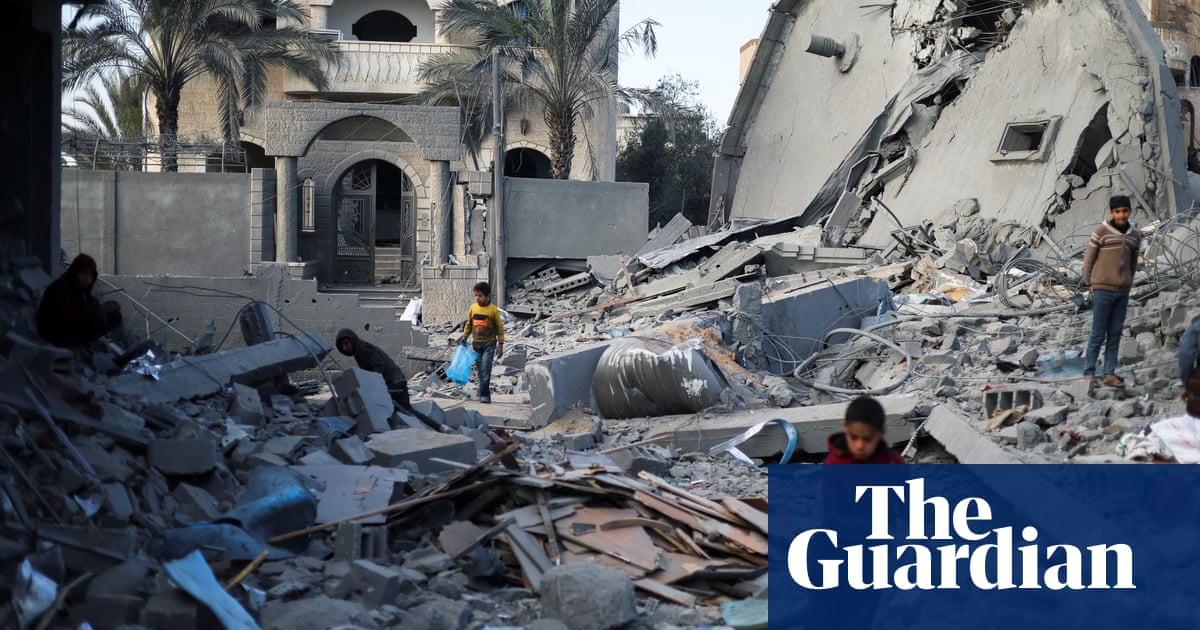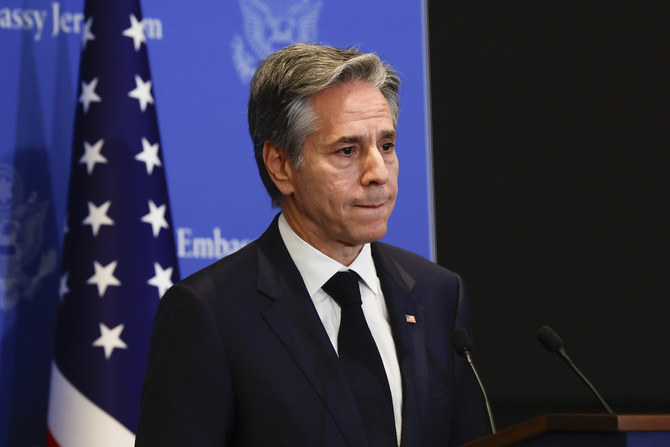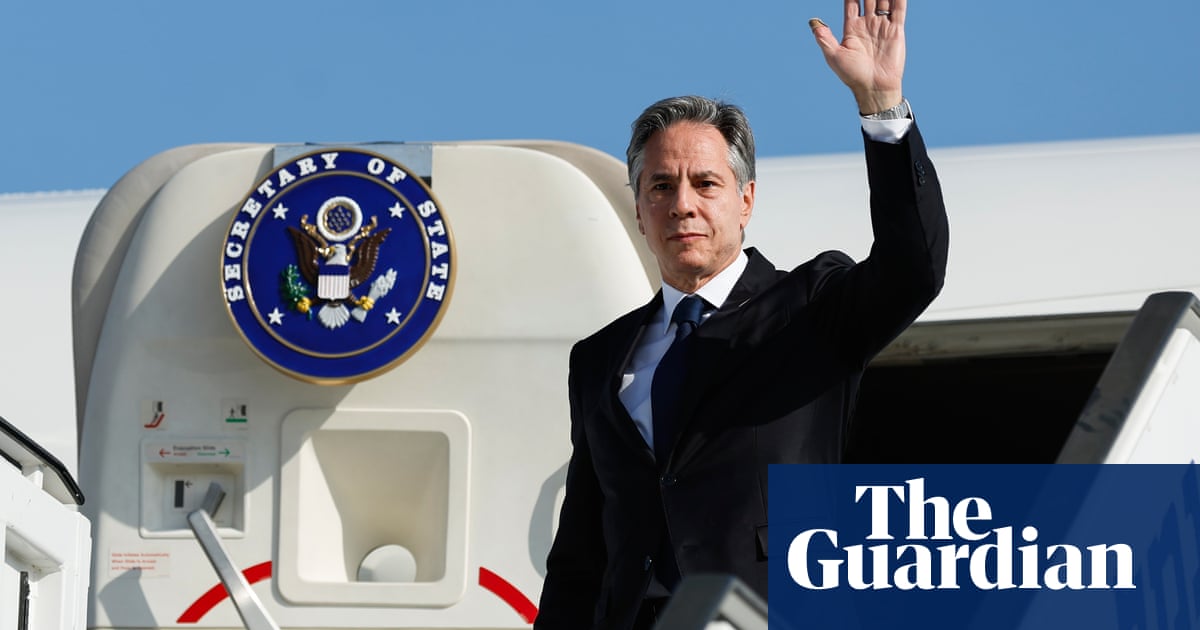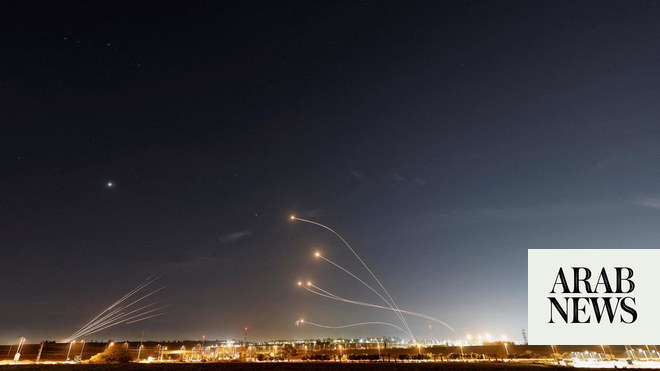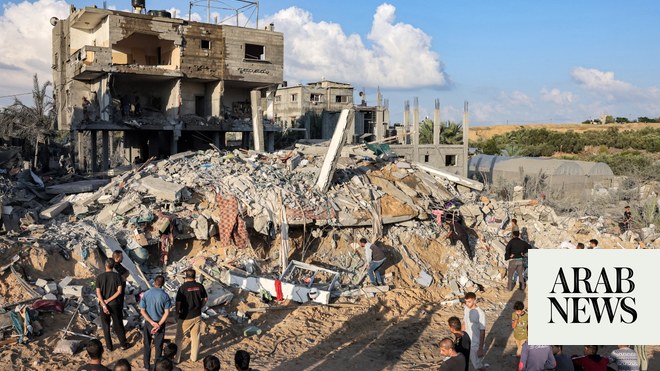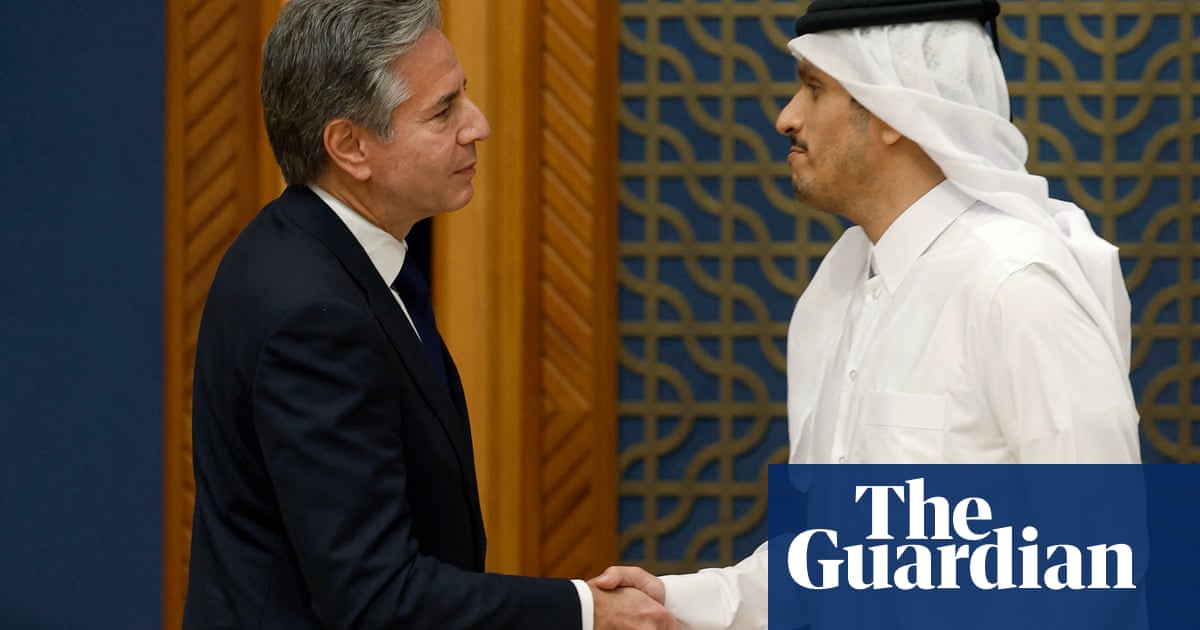
The US’s most senior diplomat has urged Israel to take every possible precaution to avoid civilian casualties in Gaza as he called for the establishment in the territory of safe zones where shelter, food, water and medical supplies can be provided.
“We have urged the Israelis to use every possible precaution to avoid harm to civilians,” the secretary of state, Antony Blinken, said. “We recognise many Palestinian families in Gaza are suffering through no fault of their own and that Palestinian civilians have lost their lives.”
Blinken was on a tour of six Arab nations on Friday to try to forestall a wider war sweeping across the Middle East. There are fears that a conflagration may erupt if Israel’s determination to crush Hamas leads to a slaughter in Gaza or an enforced exit of millions of Palestinians into Egypt.
Blinken has put pressure on the Egyptian president, Abdel Fatah al-Sisi, to open the southern border crossing from Gaza into Egypt or to open a broader humanitarian corridor, after Israel ordered 1.1 million people in Gaza to leave their homes and head further south in the territory.
But speaking in Doha after meeting Qatar’s prime minister, Blinken said he was working with UN agencies, Israel and regional powers on a plan for safe zones in Gaza.
He repeatedly defended Israel’s right to protect itself and added: “What makes this so complicated is that Hamas uses human shields, puts civilians in places where they are used to protect Hamas officials or their equipment or infrastructure.”
He added: “Civilians should not be the target of military operations. They are not the target of Israeli operations. They are very deliberately the target of Hamas operations.”
Qatar’s prime minister, Mohammed bin Abdulrahman bin Jassim Al Thani, said he was working on de-escalation, humanitarian corridors and the freeing of hostages.
US officials said Blinken had discussed Israel’s mass evacuation plan when he met the country’s prime minister, Benjamin Netanyahu, in Jerusalem on Thursday. “One of the things that we did discuss with them was the need to protect civilian lives in Gaza, the need to establish some safe areas, where civilians could relocate to be safe from Israel’s legitimate security operations,” a US official told reporters.
Palestinians and Arab states fear that rightwing members of the Israeli unity government are planning a permanent expulsion – a repeat of what Palestinians call the Nakba of 1948 – and are not just seeking to clear areas to make it easier to destroy the Hamas leadership. Israel has not yet been clear about its plans for the future administration of Gaza other than that Hamas must play no part.
The first indications from the well-armed Iranian-backed Hezbollah group in Lebanon – as well as Iran itself – was that they were not going to intervene militarily immediately.
The Hezbollah deputy chief, Naim Qassem, said on Friday that the group was “fully ready” to contribute to the fighting.
He told supporters: “We will contribute to the confrontation within our plan … When the time comes for any action, we will carry it out. The behind-the-scenes calls with us by great powers, Arab countries, envoys of the United Nations – directly and indirectly telling us not to interfere – will have no effect.”
Iran has always avoided direct military conflict with the west, preferring to operate through proxies, and although it has supported Hamas ideologically, the west has produced no evidence that Iran directed the bloody operation by Hamas.
The Saudi crown prince, Mohammed bin Salman, spoke to the Iranian president, Ebrahim Raisi, for 45 minutes this week in a rare direct call, and although both men support the Palestinian cause, neither side will want an all-out war with Israel. The Saudis have been in talks with Israel about normalisation of relations. A full-scale regional conflagration would see oil prices rising above $150 a barrel, tipping the world into a global recession.
The US is caught in the dilemma of defending Israel’s right to defend itself, but urging Israel in private to do so in a way that does not create a backlash across the Middle East and in parts of the west.
On Thursday in Jerusalem, Blinken said: “Israel has the right, indeed the obligation to defend itself and to ensure that this never happens again.
“But how Israel does this matters,” he said. “We as democracies operate to a higher standard.”
In an endorsement of the Israeli plan, the US defence secretary, Lloyd Austin, said on Friday that the Pentagon was ready to deploy more military aid to Israel as its forces prepared for an expected invasion of Gaza.
Blinken spent a morning in the Jordanian capital, Amman, discussing the crisis with the country’s king, Abdullah II, a longtime US partner, and the Palestinian Authority president, Mahmoud Abbas. He urged Abbas to try to restrain reprisals by Palestinians in the West Bank, but Abbas’s authority is limited.
Blinken flew to Qatar on Friday and is due to travel to Bahrain and Saudi Arabia, before heading in the coming days to the United Arab Emirates and Egypt. The Hamas political wing has a base in Doha, so Qatar has been seen as a chief intermediary with the west.
The UK defence secretary, Grant Shapps, told BBC radio that the UK was not aware of Israel’s military plans, but accused Hamas of using Palestinians as human shields. He said: “The UK government supports both Israel’s right to defend itself and that Israel is providing advance warning of military action so people can move themselves out of the way. It’s absolutely right that happens.”
The UN security council is due to meet later on Friday, and there were calls from NGOs for UN peacekeepers to be sent to Gaza under the UN doctrine responsibility to protect (R2P), but the idea will be vetoed by the west.






